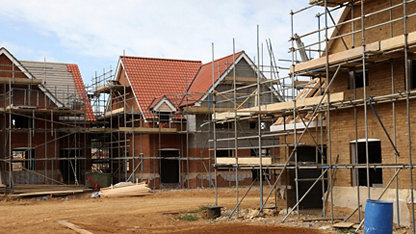RICS' goal, as a professional institution, is to deliver healthy and vibrant land and property sectors as a key pillar of a thriving economy.
There are numerous issues that have arisen during the Brexit debate that could have implications for our sectoral remit.
Accordingly, RICS is outlining its concerns and issues with Brexit – on a sector-by-sector basis – and outlines what the UK government should be doing to make Brexit work for a post-EU UK.
Construction
The UK's construction industry plays a pivotal role in job creation and maintenance, and is paramount to a sustainable UK economy.
The construction sector’s skills, needs and issues in the UK are well documented, with the aging workforce not being replaced sufficiently by new recruits. Added to this is the potential loss of the non-UK national side of the construction workforce, which accounts for 12.6% of its workers.
Any changes to the free movement of labour and construction professionals, therefore, could have a negative impact on the construction sector’s capacity to build the housing and infrastructure that the UK needs.
RICS has published a position statement below, in which we provide further concerns on the future of the post-Brexit construction sector, and what RICS is doing to encourage growth and diversity in the sector.
Infrastructure
Membership of the EU provides the UK with access to a number of EU funding streams – notably, the European Investment Bank (EIB) and European Structural and Investment Funds (ESIF). A loss of these funding streams could have negative consequences for infrastructure investment and development.
EIB investments in the UK reached €6.9 billion in 2016 – the fifth largest in the EU – and ensured shovel ready projects in the UK reached financial close.
There is much-reported uncertainty surrounding the future EU-UK relationship, and a reduction in reduced access of such European funding streams could impact the delivery of infrastructure projects in the UK, particularly in the absence of contingency arrangements.
In our Brexit Position Statement: Infrastructure, we outline the key infrastructure issues within the context of the Brexit debate, and how the adoption of international standards can support infrastructure provisions.
Published date: 13 February 2018















